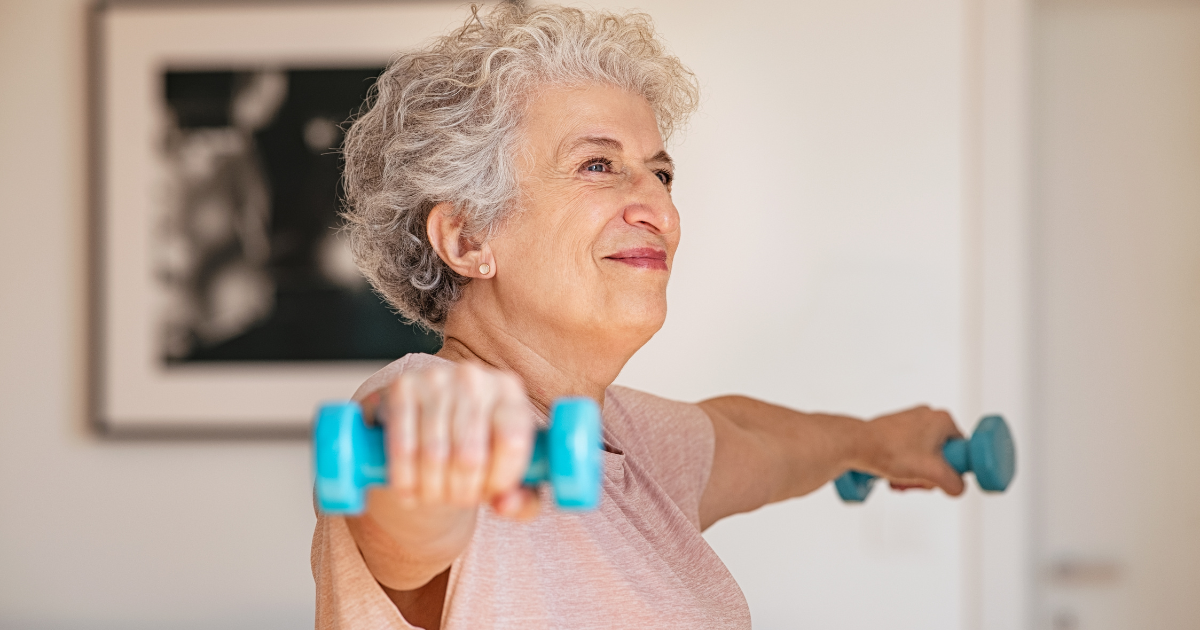As individuals in Catonsville age, they must navigate challenges that can affect senior wellbeing. Living alone, cognitive impairments and physical limitations are just a few significant life changes older adults may experience. The impact of these challenges on seniors’ emotional health cannot be understated. However, one powerful tool has been shown to elevate emotional well-being in older adults—music. Read on to explore the many benefits of music for older adults and how to use music therapy effectively to promote senior well-being.
Age-Related Challenges that Impact Senior Wellbeing
As they reach their 60s and 70s, many seniors struggle to overcome one or more of these life challenges:
- Loss of a loved one: The loss of a lifelong partner or friend can be devastating for older adults, leading to feelings of loneliness, grief, and isolation.
- Living alone: Many seniors live alone, which can contribute to feelings of loneliness and social isolation.
- Cognitive impairments: Conditions such as dementia and Alzheimer’s disease can impact cognitive abilities, memory, and emotional well-being.
- Physical limitations: Aging often comes with physical limitations, such as mobility issues and chronic pain, which can affect emotional health.
- Terminal illness: Being diagnosed with a terminal illness like cancer, Alzheimer’s, or ALS can be a real game-changer for a senior’s emotional well-being.
- Financial constraints: Seniors on fixed incomes may face financial challenges as they age, leading to stress and anxiety.
- Lack of socialization: As individuals age, social circles may shrink, leading to feelings of loneliness and isolation.
What Is Music Therapy?
Music therapy is an evidence-based practice that uses music to address physical, emotional, cognitive, and social needs. Certified music therapists work with individuals of all ages to improve their health and wellbeing using a variety of musical interventions. These interventions may include listening to music, playing instruments, singing, and songwriting. Music therapy has been shown to be effective in reducing stress, anxiety, and depression, improving mood, and enhancing overall quality of life.
Benefits of Music for Older Adults in Catonsville
Seniors who incorporate music into their daily routines enjoy these benefits as a result:
Emotional Expression
Music provides a creative outlet for seniors to express their emotions and feelings. Music can evoke memories, emotions, and sensations that may be difficult to articulate in words. Through music, seniors can release pent-up emotions, find solace in difficult times, and express themselves safely and nonverbally.
Cognitive Stimulation
Music can stimulate cognitive function, improve memory, and enhance mental acuity in older adults. Engaging with music can activate various regions of the brain involved in memory, attention, and problem-solving. This cognitive stimulation can help maintain and even improve cognitive abilities in seniors, promoting brain health and overall cognitive function.
Physical Relaxation
Listening to soothing music can help reduce stress, lower blood pressure, and promote relaxation in seniors. Music has the power to evoke emotions and sensations that induce relaxation and calmness in the body and mind. For example, classical music can help seniors unwind, de-stress, and rejuvenate, leading to improved physical well-being and overall relaxation.
Social Connection
Music can bring people together and facilitate social interaction and bonding. Sharing musical experiences with others can create a sense of connection, unity, and joy among participants. Whether singing in a choir, attending a concert, or playing in a music group, music can foster relationships, enhance mood, and minimize feelings of loneliness and isolation.
Pain Management
Music therapy has been linked to reduced pain perception in seniors with chronic pain. Music has the unique ability to distract the mind from pain signals, reduce anxiety related to pain, and release endorphins, the body’s natural painkillers. Seniors who incorporate music therapy into their pain management strategies tend to experience decreased pain intensity and enhanced comfort.
Enhancing Senior Wellbeing Through Music Therapy: Essential Tips and Strategies for Family Caregivers
Millions of aging-in-place seniors rely on relatives and friends to help them manage their daily routines. When serving as a family caregiver, here are ways to harness the power of music to improve your loved one’s emotional well-being:
Create Personalized Playlists
Work with your senior to create a playlist of their favorite songs and music genres and listen to them together. Personalized playlists can evoke positive memories, emotions, and feelings, creating a meaningful and enjoyable musical experience. Reminiscing through music can help seniors reconnect with their past, find new meaning, and heighten their sense of identity and self-worth.
Participate in Music Activities
Engage in musical activities with your senior, such as singing, playing instruments, or attending concerts. In addition to stimulating cognitive functions and promoting physical movement, participating in music activities together can foster a sense of togetherness, creativity, and enjoyment.
Incorporate Music into Daily Routines
Play music during mealtimes, exercise sessions, or relaxation activities to enhance the overall mood and atmosphere. Integrating music into daily routines can create a calming and uplifting environment for seniors, setting a positive tone for their day and promoting a sense of well-being and relaxation.
Explore Music Therapy Resources
Consider encouraging your senior to work with a certified music therapist who can tailor interventions to their specific needs. Exploring music therapy options is an impactful way to optimize the therapeutic benefits of music for our aging loved ones and support their emotional health and quality of life.
Professional In-Home Companion Care: Elevating the Power of Music for Older Adults
As part of their companion care services portfolio, home care providers can step in and help clients seamlessly incorporate music into their daily routines. Professional in-home companion caregivers can expose seniors to the power of music through:
Music-Based Activities
In-home caregivers can help clients weave music-based activities into daily routines, such as singing, dancing, or playing instruments. These activities can provide opportunities for creativity, self-expression, and social interaction, enhancing seniors’ emotional connection, self-esteem, and engagement.
Emotional Support
Caregiving professionals can use music to provide emotional support and comfort to clients, offering a listening ear and a source of solace. By creating a compassionate and supportive environment, companion caregivers can help seniors feel heard, understood, and valued, promoting emotional well-being and a sense of security.
Encouragement and Motivation
In-home caregivers can use music to encourage and motivate seniors to join in activities and maintain a positive outlook. Selecting uplifting and energizing music allows caregivers to inspire seniors to stay active, involved, and motivated, fostering a sense of purpose, achievement, and well-being.
Transportation for Therapy Sessions
When seniors lack reliable transportation, companion caregivers can get them where they need to be, including music therapy sessions. This often-overlooked home care benefit can relieve some of the burden off family caregivers, many of whom have a job and household to manage in addition to their caregiving responsibilities.
In conclusion, music has the power to elevate seniors’ emotional well-being, providing comfort, joy, and healing in the face of age-related challenges. Music therapy is a proven way to optimize senior well-being, from emotional expression and cognitive stimulation to social connection and pain management. When called upon, both family and professional caregivers can be vital in enhancing the emotional health of older adults through music, orchestrating a harmonious and supportive environment that helps seniors lead more active and fulfilling lives!
Your Trusted In-Home Senior Wellbeing Partner in Catonsville
Helping an aging loved one improve their emotional well-being through music for older adults, including music therapy, can be challenging. When you need assistance, contact Trusted Hearts Homecare Solutions in Catonsville. As a fully licensed and accredited home care provider, our compassionate caregivers can step in and serve as an extended family in your loved one’s home. We offer a comprehensive lineup of family-trusted home care solutions, including Alzheimer’s & Dementia Care, Companionship, Home Care Management, Hospice Care, Pediatric Nursing, Personal Care, Respite Care, Skilled Nursing Care, and Veteran Care.
While assisting clients in Catonsville, Baltimore, Baltimore County Metro Area, Ellicott City, Pikesville, and Towson, our agency’s focus is maintaining their quality of life, dignity, self-esteem, and independence. For your added convenience, all our home care services can be individually personalized into an affordable package when and where you need them! Please visit Trusted Hearts Homecare Solutions now to learn more about how our companion caregivers help clients enhance senior well-being or schedule a free consultation for someone in our service area.



